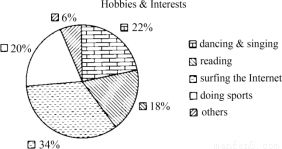Understanding the Basics of Surveys

When it comes to gathering information, conducting a survey is often the go-to method. But what exactly is a survey, and how do you go about making one? Let’s delve into the basics and explore the various dimensions of survey creation.
What is a Survey?

A survey is a research method used to collect data from a particular group of people. It involves asking a series of questions to gather information about their opinions, behaviors, or characteristics. Surveys can be conducted through various mediums, such as online forms, phone interviews, or face-to-face interviews.
Types of Surveys

There are several types of surveys, each with its own unique characteristics and purposes. Here are some common types:
| Type of Survey | Description |
|---|---|
| Online Survey | Conducted through an online platform, allowing respondents to complete the survey at their convenience. |
| Phone Survey | Interviews conducted over the phone, where a researcher asks questions and records the responses. |
| Face-to-Face Survey | Interviews conducted in person, where a researcher asks questions and records the responses. |
| Mail Survey | Surveys sent through the mail, where respondents complete the survey and return it by mail. |
Designing Your Survey
Designing a survey involves several key steps:
-
Define your objectives: Clearly understand what you want to learn from the survey.
-
Choose your target audience: Determine who you want to survey and why.
-
Develop your questions: Craft clear, concise, and unbiased questions.
-
Choose your survey format: Decide whether to use a paper survey, online survey, or another format.
-
Test your survey: Pre-test your survey to ensure it is clear and easy to understand.
Types of Questions
There are various types of questions you can include in your survey, each serving a different purpose:
-
Open-ended questions: Allow respondents to provide detailed answers in their own words.
-
Multiple-choice questions: Provide a set of options for respondents to choose from.
-
Rank-order questions: Ask respondents to rank options in order of preference.
-
Scaled questions: Use a scale to measure respondents’ opinions or attitudes.
Analyzing Survey Data
Once you have collected your survey data, it’s time to analyze it. Here are some common methods:
-
Descriptive statistics: Summarize the data using measures such as mean, median, and mode.
-
Cross-tabulation: Analyze the relationship between two or more variables.
-
Regression analysis: Determine the relationship between a dependent variable and one or more independent variables.
Best Practices for Survey Creation
Here are some best practices to keep in mind when creating a survey:
-
Keep it short and focused: Avoid overwhelming respondents with too many questions.
-
Use clear and concise language: Avoid technical jargon and complex sentence structures.
-
Ensure anonymity: Make sure respondents feel comfortable sharing their opinions.
-
Thank respondents: Show appreciation for their time and participation.
Conclusion
Creating a survey can be a valuable tool for gathering information and making informed decisions. By understanding the basics, choosing the right type of survey, and following best practices, you can ensure a successful survey experience.




